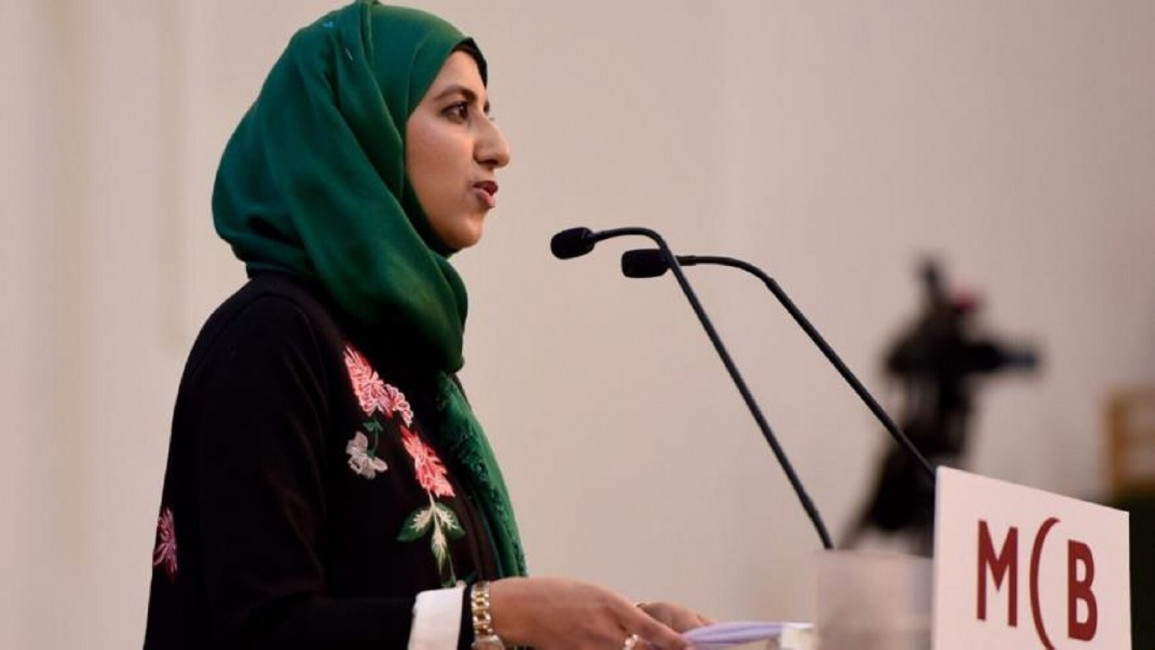BBC refuses to apologise over 'Islamophobic' interview
The Women's Hour programme, which airs on BBC Radio 4, hosted Zara Mohammed, the first woman elected to the Council, an umbrella of hundreds of Muslim organisations in Britain.
Emma Barnett, host of the programme, stirred outrage after she repeatedly asked Mohammed how many female imams there were in the UK. Some commentators accused her of Islamophobia and religious illiteracy.
Two hundred people, including more than 100 public figures such as the Tory peer Sayeeda Warsi, the Labour MPs Diane Abbott and Naz Shah, and the comedian Deborah Frances-White, co-signed a letter to the BBC. The letter called on the broadcaster to issue a statement committing to engage with Muslim women "in good faith".
"Most of Mohammed's answers were interrupted, revealing an instinctive urge not to listen to the voice of a Muslim woman but to jump in," the letter said.
"Despite the BBC having a commitment to due impartiality and fairness, the line of questioning fell into a well-worn narrative of presuming Muslim women are inherently disenfranchised," it added.
The interview "reflected the approach and tone of accountability with a politician, rather than truly getting to know and engaging in what British Muslim women mean", the letter read.
The letter also urged the BBC to boost recruitment of Muslims to "leadership and commissioning roles" within the organisation and provide better opportunities to those in "non-leadership positions" to reach those roles.
Twitter Post
|
The BBC released a statement on Friday, which did not apologise nor did it address the complaints.
"While we appreciate that people sometimes have a different reaction to our interviews and discussions, we believe it was legitimate for the programme to seek clarification of some of the issues facing Muslims in the UK," the statement read.
"We pledge to return to this issue on air soon, to deepen our engagement with issues of concern to the majority of Muslim women, as well as to consider diversity on the Women's Hour programme as part of the BBC's plans to reflect the society we serve more accurately," the statement said.
Tim Davie, the director general of the BBC responded to the letter to clarify the broadcaster's position, saying: "As an employer and a broadcaster paid for by the public, we have a duty to reflect the whole of the UK in our staff and within our programmes."
He added: "You are correct, across the BBC, representation of Muslims within our staff is lower than the national average but it is not as low as you suggest."
Just over 2.5% of the BBC workforce had identified as Muslim, he said: "I want to assure you that improving the representation of our staff is a key priority for me and my executive team. We have more work to do but we are determined to get there."
Commenting on the BBC’s reaction to the letter, Maryam Khan and Yasmine Abdel-Magied, two signatories of the letter, said that Davie and the programme in question "failed to engage in the details of our concerns about the content of the interview".
They added that it was frustrating that Davie chose to refer to statistics about Muslims working in the authority, while ignoring the percentage of representation in the production studios for television and radio, which "requires attention, at the level of workers and the level of leadership".
Follow us on Facebook, Twitter and Instagram to stay connected



